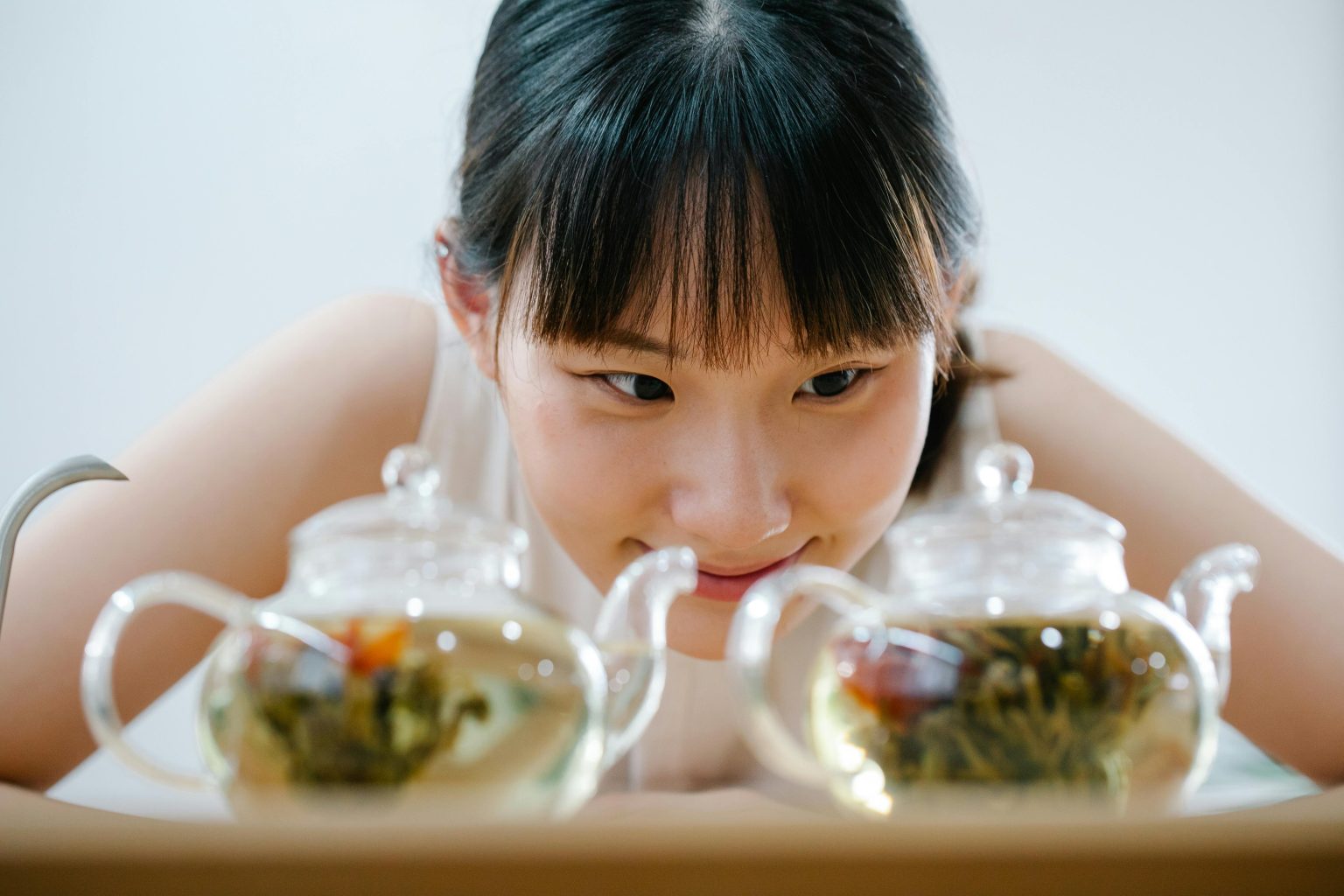In a world where stress has become a near-constant companion, people are turning to everything from guided meditation to weighted blankets in search of calm. But one of the most unexpected – and pleasantly fragrant – allies in the fight against anxiety may already be sitting in your kitchen cupboard: jasmine tea.
More than just a delicately flavoured drink, jasmine tea is emerging as a subtle but powerful tool for managing stress. And the secret lies not in the taste, but in the scent.
The Nose Knows: Why Scent Matters
Science has long recognised the connection between smell and emotion. The olfactory bulb, which processes scent, is closely linked to the limbic system – the part of the brain responsible for emotion and memory. This is why certain smells, like fresh bread or cut grass, can evoke strong feelings almost instantly.
When it comes to jasmine, the effect is even more pronounced. A number of studies have shown that the scent of jasmine has a direct impact on brain activity, promoting a sense of calm, reducing anxiety, and even improving sleep quality.
According to a study published in the Journal of Biological Chemistry, the aroma of jasmine activates GABA receptors in the brain – the same ones targeted by anti-anxiety medications like Valium – leading to a natural sedative effect without the side effects.
Jasmine Tea: More Than a Drink
Jasmine tea, usually made by layering green tea leaves with jasmine blossoms, is prized not just for its floral profile but for its gentle soothing properties. While green tea itself contains L-theanine, an amino acid known for promoting relaxation and focus, the addition of jasmine elevates the experience.
“When you open a tin of loose jasmine green tea, the aroma alone starts working,” says Dr. Amy Langford, a nutritional therapist based in Bath. “We often overlook the sensory power of scent. With jasmine tea, you’re engaging both smell and taste in a way that directly impacts the nervous system.”
She adds that many of her clients report that switching their evening tea to jasmine helps them feel less jittery and more grounded – particularly after screen-heavy workdays.
Smelling Before Sipping
Interestingly, research suggests that inhaling the scent of jasmine tea before drinking may be as important as the drink itself. A team of Japanese scientists found that simply smelling jasmine for five minutes significantly reduced heart rate and increased feelings of wellbeing in study participants.
This could explain why jasmine tea is often associated with mindfulness and ritual. The act of preparing a pot, inhaling the aroma, and taking time to sip slowly adds up to more than hydration – it becomes a mental reset.
In a culture of rushing and scrolling, the intentional pause that jasmine tea invites is no small thing.
The British Take on a Chinese Classic
Jasmine tea originated in China, where it has been used for centuries in traditional medicine and spiritual practices. In recent years, it has found its way into British homes and café menus, often as a calming alternative to high-caffeine drinks or sugary comfort foods.
Now, more UK consumers are discovering jasmine tea not just for its taste but for its mental health benefits. It is being recommended by herbalists, stocked in yoga studios, and added to self-care routines across the country.
British brand Twyford Tea Company, which specialises in hand-packed jasmine green tea, reports a steady rise in interest from customers seeking gentle, caffeine-light alternatives to their usual brew.
“People are looking for small, natural ways to manage stress,” says founder Mikhail Ilin. “Jasmine tea has this elegant duality – it’s a pleasure, but it also does something. You feel it in the body, not just the palate.”
Not All Jasmine Teas Are Equal
If you are looking to add jasmine tea to your daily routine, quality matters. The best jasmine teas are scented naturally using fresh jasmine blossoms – a process that can take several days – rather than flavoured artificially. These teas will have a subtle, layered aroma rather than a cloying, perfumed hit.
Loose leaf options generally offer better quality and more pronounced scent profiles compared to mass-produced tea bags. Brewing at the right temperature (around 80°C for jasmine green tea) also preserves both flavour and the delicate aromatic compounds that make jasmine tea so distinctive.
For those sensitive to caffeine, jasmine white tea or jasmine herbal blends are gentler alternatives with similar aromatherapeutic effects.
A Cup of Calm That Works
In the crowded space of wellness products, jasmine green tea stands out for its simplicity and scientific grounding. You don’t need an app, a subscription, or a therapist to take advantage of its stress-relieving powers – just a kettle and five quiet minutes.
It is not a cure-all, of course. But in a society where stress is often treated with screens and stimulants, the gentle approach matters. Jasmine tea offers a different kind of calm – one that comes not from numbing, but from sensing.
So the next time stress creeps in, you might skip the glass of wine or the second coffee. Instead, open the jar, take a breath, and let jasmine do what it has done for centuries: bring you back to your senses.



